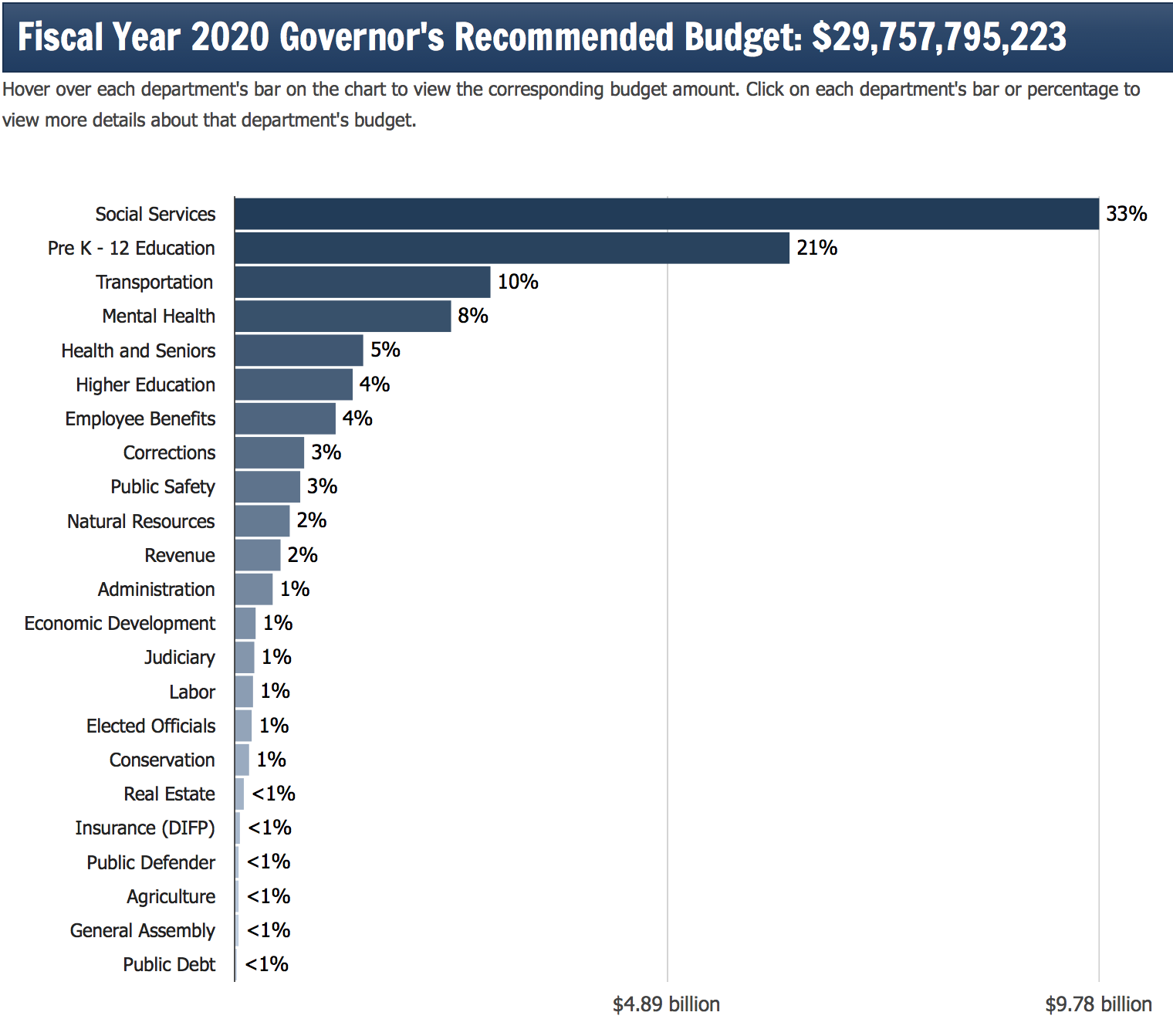JEFFERSON CITY, Mo. — After a brouhaha over tuition rates for “Dreamers,” the Missouri General Assembly has completed their constitutional obligation of passing a budget.
Working late Thursday — and, for the Senate, into Friday — the chambers gave their final stamp of approval to the state’s $30 billion operating budget for FY 2020, which starts July 1 of this year.
The hot topic of the budget in the final hours related to who is eligible for in-state tuition at Missouri’s public universities. The conference committee removed the requirement that undocumented immigrants be charged international tuition, instead, allowing a college to set its own policy — as schools did before the budget mandate. After some procedural maneuvering, the language was added back in in a second conference committee.
The Senate spent considerable time discussing the issues before ultimately truly agreeing and finally passing the bill.
“After I agreed to go back to conference, they wouldn’t even meet,” said Sen. Jason Holsman, who proposed the compromise in conference. “They wouldn’t meet face-to-face so I could look them in the eyes and say, ‘You wouldn’t compromise.’ My name is not on that report.”
He pointed out the majority of the conference committee spoke in favor of removing the language — which was the Senate’s position — and all 10 members of the committee signed the report.
Some senators were supportive of the language being added back. A member of the Conservative Caucus said he didn’t feel like the version approved by the Senate ever represented the Senate position.
“I will never stand in this chamber advocating for positions that break the law. Not one compromise was ever offered that didn’t break federal law,” said Sen. Bill Eigel.
Though, Senate President Pro Tem Dave Schatz countered they “weren’t authorizing breaking the law because we weren’t saying anything.”
Ultimately, the Senate approved the second committee report and went to approval all of the bills that comprise the budget.
The final version of the budget included pay raises for all state employees and an additional pay increase for corrections officers. Mileage reimbursement rates were increased from $0.37 to $0.43 per mile.
Lawmakers agreed to increase core funding for all public universities by $1 million with some, such as Missouri State University, receiving as much as a $10 million increase. State Technical College received a $500,000 core increase and $500,000 for deferred maintenance. Additionally, $10 million in lottery funds was allocated to the Fast Track grant program— provided pending legislation crosses the finish line.
The K-12 foundation formula for public schools was fully funded for the third year in a row. Public schools core funding increase roughly $60 million, from $3.49 billion in FY2019 to $3.55 billion in FY2020. Public school transportation saw a $5 million funding increase, for a total of $108 million in appropriations.
The two chambers agreed to allocate $50 million in general revenue for an initial payment on a $301 bond for bridge repairs and another $50 million for a cost-share program with local municipalities to fund road repairs.
Lawmakers also allocated a $1.1 million increase to restore prior year cuts to aid public libraries.
Other highlights:
-
$5 million for rural broadband grants
-
$250,000 for victims of sexual assault
-
$5 million for lottery pull tabs
-
Capitol police will remain under the Department of Public Safety’s purview
-
$67,500 for virtual desktops
-
$347,338 for industrial hemp program
-
$5 million for Department of Conversation to study chronic wasting disease
-
$9.6 million for Missouri Works One Start
-
$350,000 for a bicentennial celebration
-
$6 million in SEMA grants for flood recover ($2 million moved to HB 19)
-
$25,000 for Lieutenant Governor’s Buy Missouri Program
-
$300,000 for the brand new Missouri Military Community Reinvestment Program
-
$5 million for alternatives to jail program for pre-trial electronic monitoring aimed at saving counties and the state millions in prisoner per diem costs
-
$153,000 to fund the Time Critical Diagnosis Unit
-
1.5 percent rate increases to Medicaid providers (returning to FY17 reimbursement levels)
The Consensus Revenue Estimate is projecting the general revenue collection for Fiscal Year 2020 will go up compared to the current year. Net general revenue collections in FY2020 are estimated to be $9.822 billion. This represents a growth of $193 million over the estimated revenue for FY 2019. The estimate for FY 2020 assumes growth of 2.0 percent. The revised estimate for the current fiscal year is $9.629 billion.
Between general revenue collections, federal funds, and other sources of revenue the total budget for FY 2020 — which starts July 1, 2019 — is $30,090,180,470. That figure includes a one-time expense for Capitol improvements.
The operating budget for FY 2020 is $29.7 billion. The approved operating budget for FY 2019 is $28.8 billion. Operating expenditures in FY 2018 totaled $25.7 billion.
“At the start of the 2019 Legislative Session, the Senate Democratic Caucus called for fully funding the School Foundation Formula; increasing School Transportation dollars; strengthening our workforce through Higher Education and job training; and making sure our Mental Health Safety Net is there for anyone in crisis,” said Sen. Gina Walsh in a statement, “Today, Senate Democrats passed a bipartisan, balanced budget that achieves all of these goals and more.”

Alisha Shurr was a reporter for The Missouri Times and The Missouri Times Magazine. She joined The Missouri Times in January 2018 after working as a copy editor for her hometown newspaper in Southern Oregon. Alisha is a graduate of Kansas State University.

















